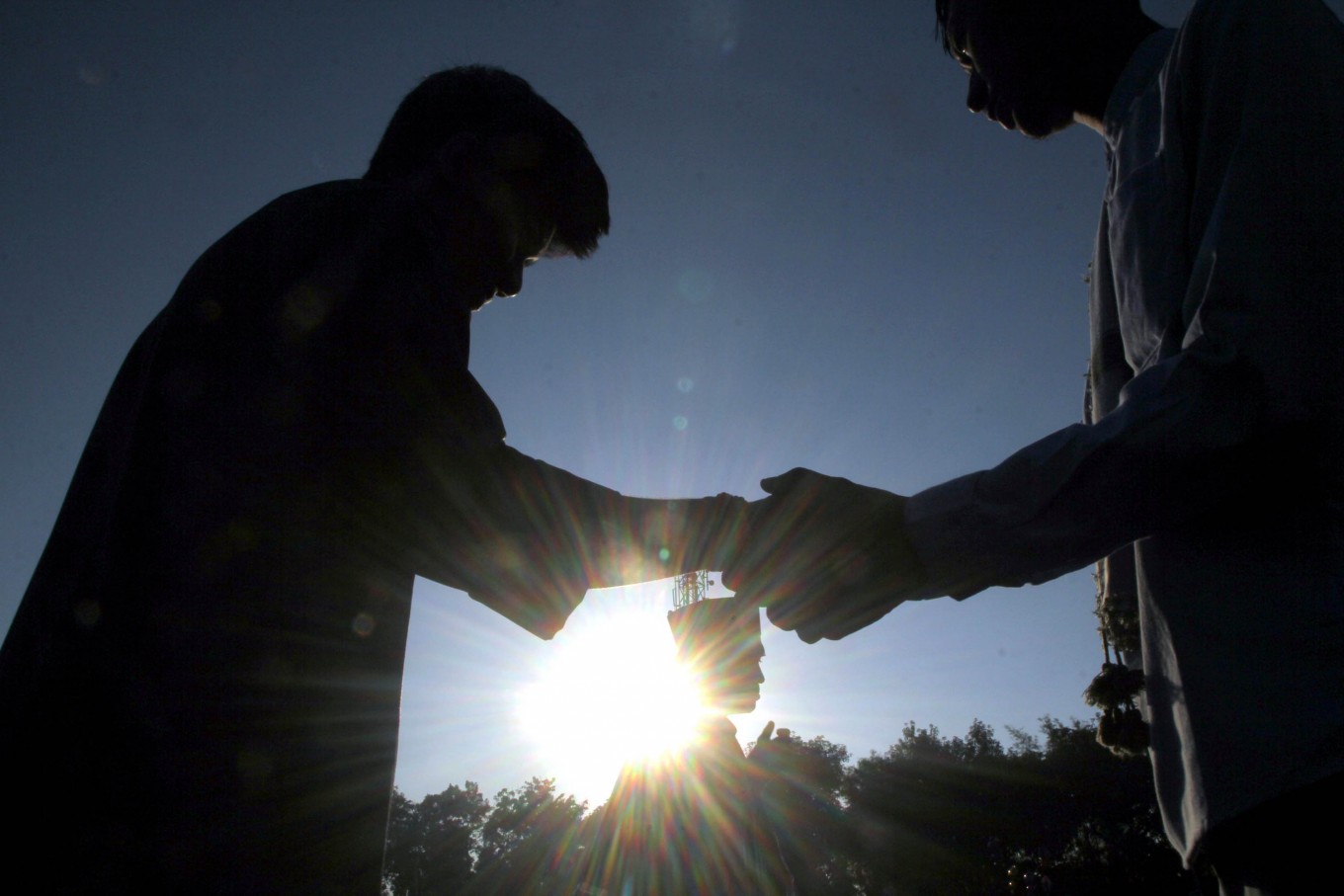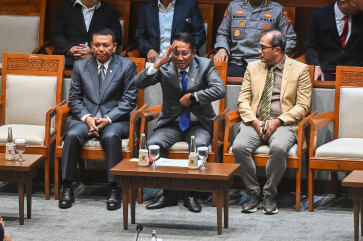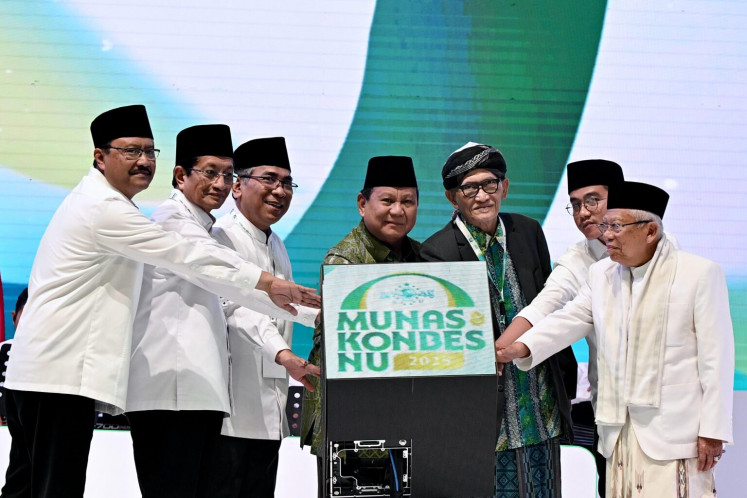Popular Reads
Top Results
Can't find what you're looking for?
View all search resultsPopular Reads
Top Results
Can't find what you're looking for?
View all search resultsEDITORIAL: Spiritually equal
On Tuesday, the Constitutional Court reminded us that these faith minority members are not exotic objects, but long-neglected, stigmatized citizens .
Change text size
Gift Premium Articles
to Anyone
W
e as Indonesians are proud of our rich diversity of ethnicities with their distinct cultures, including languages and indigenous faiths — which we advertise for tourism and display as “Instagrammable” souvenirs from our vacations.
That followers of such beliefs face much hardship in their daily lives are at best considered unfortunate, a classic fate of traditional communities, as they are not regarded as equal citizens with those who follow mainstream religions.
On Tuesday, the Constitutional Court reminded us that these faith minority members are not exotic objects, but long-neglected, stigmatized citizens .
In an historic step, the court unanimously annulled two articles of the Civil Administration Law that state citizens whose faiths have yet to be recognized by the state should leave vacant the space for religion on their ID cards; and that such citizens would still be registered in the population database.
The court ruled the above clauses, which exclude native faiths in their reference to religion, unconstitutional, rendering the law inconsistent with itself and with other laws such as the Human Rights Law as apart from the Constitution. Such inconsistencies have perpetuated the violation of citizens’ constitutional rights — namely the difficulties among the minorities to get access to public services, even though they are registered.
Native faith followers have reported difficulties in enrolling children in school, applying for jobs, acquiring birth and marriage certificates — even death certificates. Many parents in Sumba in East Nusa Tenggara (NTT), for instance, have allowed their children to be baptized to ensure their education, increasing the risk of extinction of the ancient Marapu faith.
However as an official said in the wake of the verdict, recognizing the faiths as religions might invite backlash from mainstream groups.
Foreigners may wonder why people are so adamant on stating their religious identity, considered a private matter in the West. Here, followers of native faiths say they yearn to state their real faiths on their civil documents. However the most feasible policy change following the court ruling might be resorting to New Order days when native faith followers could opt for “belief” on the ID card space for “agama/kepercayaan” (religion/non mainstream belief).
Maybe we could emulate Singapore, which does not list religion on its IDs, to lift doubts that native faith followers would likely still be discriminated against when listed as such on their IDs. Eradicating the religion space from IDs would ensure Indonesia does not even discriminate against possible atheists.
The naysayers would say Indonesians still need religious identity on their documents for clarity in affairs partly regulated under religious law such as inheritance.
Monotheism came much later to our archipelago, meaning our rainbow of creeds is central to Indonesia’s heritage. Ending discrimination of the followers of those creeds is central to preserve that heritage, an inseparable part of our identity.










